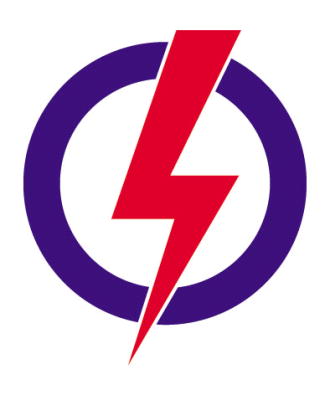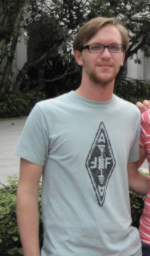Article
Singapore: Where in China is that? (Hint: It is not!)
ID # 3761
Singapore: Where in China is that?
Me: I just got back from Singapore!
Friend: Oh! How was China? Where in China is that?
Me: Singapore is a five hour flight from China! It is a city-state at the tip of Malaysia.
*Later*
Friend: Its an island just above the equator! It must be pretty hot! Must be pretty slow paced.
Me: Absolutely not. Often called the aircondition nation it is a place where shopping and eating are national pastimes, but far from being a laid back place of leisure Singaporeans work more hours per week on average than any other state in the world!
I wanted to start off with this small example of a dialogue I have on a (sadly) relatively regular basis. In fact, I had to remind my own brother that Singapore is its own country, not in China, even after being there for 6 months. I (and Singaporeans) constantly have to explain that Singapore is its own country, distinct from China (or Malaysia for that matter).
It is a city-state of four major ethnic groups as well as many other immigrant groups from around the world, making it one of the more diverse nations on earth. Additionally it is one of most important cities on the globe, for much of the worlds oil and consumer goods pass through its ports. It is increasingly becoming a center of global finance and it is hoping to expand its role in the creative industries (i.e. arts, design, education, scientific research).
However, first glances belie the complexity of the Singaporean state. Its smoothed edges are constantly being disrupted by daily life in this former outpost of the British colonial empire. Aside from this, very few people have ever heard of Singapore or contemplated its significance regularly. Thus, rather than suffering from a glut of stereotypes it suffers more from just an ignorance of its society and existence, such that its conflation with China seems normal. Thus, Singapore often gets portrayed for its eastern characteristics; characterized as having a weak civic society (recent elections disprove this), and a blind adherence to the rules; probably best illustrated by the T-shirts which bear some of Singapores more famous laws, such as the illegality of purchasing chewing gum, jay walking, spitting, etc. So, while it is certainly true that the government is very powerful and places what some would view as severe limits on freedoms such as freedom of assembly and the press (some major exceptions), by an large Singaporeans are accorded many of the same rights and freedoms that people in many other countries such as the UK are accorded and often have vocal views in opposition to the views represented in the largely single party government dominated by the Peoples Action Party.

But rather than just exist in blind acquiescence, Singaporeans satirize themselves, revealing their ability to poke fun, just as other societies do. Thus, rather than being an eastern society it is better to characterize Singapore as a cosmopolitan (for lack of a better term), global city that has a deep complexity as do other global cities such as New York, London, Tokyo, or Sao Paulo.
It should however be understood that combating the stereotypes of Singapore is not particularly easy because the states adoption of English and western educational standards and curriculum has students studying Shakespeare at the expense of Singaporean authors, thus rarely offering even Singaporeans (at least in formal education) more than a single perspective, even if that perspective is often attacked. Is this because a lack of history (another stereotype)? No. Rather it is a continuity of practice where the government adopted the colonial practices. In fact the Singaporean state has maintained strong (rather beneficial) relations with its former colonizer, the United Kingdom. It is dedicated to the bilingual identity, with one of those languages being English.
This means Singaporeans (I have talked to) rarely mention Singaporean perspectives in literature and art (as with other topics which give alternative perspectives at the level of public exchange. This complicates the ability to access resources that would allow us to combat these stereotypes, but I have provided a listing below of some possible sources.
Resources:
Nothing replaces actually talking to the people themselves, but here are a few links. After speaking with many of my friends in Singapore I came to realize that there are actually few published alternative stories of Singapore. Even the memoir (which I have read) of Former PM Lee Kuan Yew does little to combat stereotypes (other than to perhaps provide a more nuanced understanding of Singapore from the perspective of its former leader) or colonial constructions of Singapore. This is particularly clear when it comes to Singapores third world status; a status that was desired later in Singapores development, even when it was becoming one of the richest countries on the earth.

All sources are targeted towards High school students.
Politics and Society
http://www.cheriangeorge.net/index.html (Targeted towards Singaporeans; any of the essays or books can give valuable insight into the complexity of the Singaporean society.
http://www.airconditionednation.com/home/Welcome.html (Website lists writings by George Cherian, a Singaporean author, who writes about Singapore politics and society.)
http://theonlinecitizen.com/ (Online non-government supported news source)
http://www.straitstimes.com/ (Government supported news source)
Singapore a Global City:
http://www.ura.gov.sg/ (government website that gives one a view of the modern development of Singapore)
Singaporean Authors:
Nadirah
http://www.mansingaporetheatrefestival.com/play/nadirah/ (speaks to interculturality; well praised and controversial Singaporean writer about Singaporean society, Alfian Saat)
Alfian Sa’at was once a teacher until his sexuality became public knowledge and he was forced to resign his post. This once celebrated figure became maligned as a exemplar of the denigration of values as a result of western influence. His lifestyle is seen as counter to “asian” values. He writes on the fluidity of identity and the constuction of identity in Singapore. Great for those interested in understanding the great depth and complexity of Singaporean society and identity construction.
Five Right Angles by Aaron Lee
http://www.ethosbooks.com.sg/store/mli_viewItem.asp?idProduct=198 (poetry upon urban life in Singapore)
No Other City by Aaron Lee and Alvin Pang
http://www.ethosbooks.com.sg/store/mli_viewItem.asp?idProduct=79 (anthology of urban poetry pertaining to Singapore)
http://www.verbosity.net/columns.html (collection of writings by Alvin Pang)
Created By
Joel Daniels
